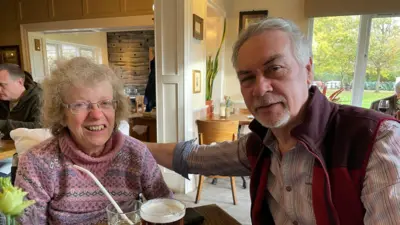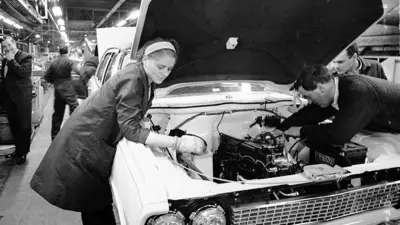We've updated our Privacy and Cookies Policy
We've made some important changes to our Privacy and Cookies Policy and we want you to know what this means for you and your data.
Women 'in the dark' on heart risk
Only one in 10 women aged 50 or older say they have discussed their risk of heart disease during a GP visit, according to a survey.
The British Heart Foundation poll of more than 4,000 UK women also found many unaware of the symptoms of a heart attack.
It says that both women, and doctors, should be more aware of the threat.
"Health MOTs" for all over-40s including heart health checks, are currently being introduced in England.
While the death toll from heart disease in middle age is lower for women than for men, it still kills more than 40,000 UK women each year.
Specialists say that spotting more cases early could make a marked difference to the number of heart attacks and deaths.
Risk factors
There may be a greater opportunity to do this for women, who are frequently more regular visitors to GP surgeries than men.
The survey suggested that, despite this, only 10% had had a conversation about risk factors for heart disease with their GP.
A second poll of 2,829 women suggested that fewer than half of women would dial 999 if they were suffering some of the best-known symptoms of a heart attack, such as chest pain.
In fact 11% said they would just go to bed, and 7% would ignore the symptoms and try to carry on as normal.
Dr Mike Knapton, a GP and associate medical director at the British Heart Foundation, said: "These results show serious gaps in the way women are thinking about heart health - they highlight the common myth that heart disease is a middle-aged male health problem which simply doesn't affect women in the same way."
However, he said that it was important that GPs also tackled the issue.
"It's vital that us GPs 'think heart' for our female patients. All women over 40 are entitled to a free health check which takes just a few minutes.
"The truth is that too many lives are lost each year to a killer which is largely preventable."
Dr Kathryn Griffith, a York GP and president of the Primary Care Cardiovascular Society, said that access to the health checks was still not universal in England, more than two years after the initiative was announced.
She said: "Although some funding has been provided, which is excellent news, it was not ring-fenced for vascular checks, and in some cases has not reached individual practices.
"What we need is for the funding to be backed up with some actual targets."
She added that messages about increased heart risk needed to be directed at those at greatest risk.
"Unfortunately, the people who will ask for vascular checks are not the people who should be asking.
"What really needs to happen is for a younger woman on Coronation Street or Eastenders to have a heart attack."
Top Stories
More to explore
Most read
Content is not available








